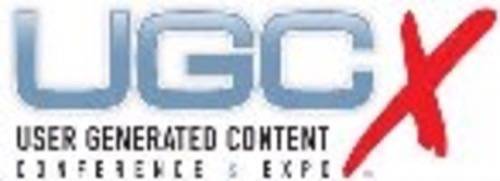In an era where user generated content is changing our entire culture, rare is the company that can successfully harness the collective creativeness of its community, cultivate loyalty, make money consistently, and continue to flourish. Enter Craigslist. Listed as the tenth top site in America on Alexa and with close to 50 million unique visitors a month according to Compete, Craigslist is one of the few companies that appears to have worked it out.

Yesterday, at the User Generated Conference in San Jose, CA, founder Craig Newmark gave us an insight into what has and what hasn’t worked for the privately held company.
Recognize the Importance of a Feedback Loop
It all began in the fertile dot com era when Newmark, while working at Charles Schwab, realized the time was ripe to begin something of his own.
In early 1995 he started sending out a simple CC list, e-mailing arts and tech events to a small group of interested subscribers. Very quickly, people started e-mailing him with news about jobs and apartments in the hope he would add them to his mailing list.
“From the very beginning,” Newmark said, “I was involved in talking to people; listening to people. And it hasn’t stopped. The idea was that people send me information; I’d ask them about it, listen, try to do something about it – and then ask for more feedback.”
Get Out of The Way
Borrowing from a sixties phrase “lead, follow or get out of the way,” Newmark pointed out that while you may have a great idea, it doesn’t necessarily mean you have the skills to manage it or nurture its growth.
After Newmark had about 240 addresses on his list, it started breaking. He needed a list server and began thinking of ways to move his email folders onto the Web, but what to call it? Anthony Batt, the man behind Buzznet, and clearly part of the original Craigslist community came to Newmark’s rescue. “Hey, we already call it Craigslist, may as well call it that and start building a brand.”
The year was 1995 and Newmark began migrating his email folders over to the new Web site. The move instilled a new drive in Newmark who chose to keep the site personal and quirky. With the support of his loyal community, Newmark ran the site by himself for the next few years.
But by the end of 1997 Craigslist hit three milestones.
- Craigslist hit one million pageviews
- Microsoft approached Newmark with an offer to run banner ads (he said no)
- People began approaching Newmark wanting to help with the site on a volunteer basis
While he tried letting people run the site on a voluntary basis, in 1998 he realized it wasn’t working: “mainly because of lack of leadership on my part,” Newmark explained.
Craigslist was incorporated in 1999, when Newmark decided it was time to make “this thing” into a company. By the end of that year he stopped coding and moved onto customer service and corporate governance full time. “Frankly, as a manager, I kinda suck,” Newmark explained, “but fortunately Jim [Buckmaster] didn’t.” By the end of 1999, Buckmaster was Craigslist’s CEO.
“Getting out of the way is really important,” said Newmark. “A lot of people talk about customer service and staying involved,” he said, “but they don’t keep going.”
Newmark, like others before him, recognized the need to move away in order to see the company succeed. “People that start companies, and lack management skills, they fail.”
Understand We Live in a Culture of Participation
In 2005, Hurricane Katrina struck the New Orleans area with devastating effect. It was reported that more than 1,800 people lost their lives, and damages exceeded $81 billion dollars.
The tragedy was a somber reminder to Craigslist and its founder that getting out of the way didn’t only apply to the internal dynamics of a company; it must also be applied to the community.
New Orleans survivors started repurposing Craigslist. They began to use it to let their friends and family know where they were at the height of the confusion. Within days the site was being used to offer jobs and housing to those who suffered loss during Katrina. “We didn’t care that the site wasn’t being used how we had imagined,” Newmark explained.
It’s this keen understanding that we’re living in what Jay Rosen has dubbed the culture of participation that makes companies like Craigslist so successful.
During a recent interview with The Daily Beast, Jeff Jarvis, author of the recently released What Would Google Do?, nominated the Craigslist philosophy as a key rule of the Google age:
“As Google built the most powerful tool imaginable–the entire world of digital knowledge revealed behind a simple search box–so did Craig build a simple tool that changed society (and newspapers and real estate and more) without prescribing how we should use it. They create platforms to enable us to do what we want to do and then, instead of giving us rules about their use, then they stand back and put us in charge.”
“The Internet is about inclusion,” Newmark said, “on the Net, no one should be left out.”
The lessons Newmark painted yesterday are vivid; no matter how much you may think you know, you’ll never master everything, surround yourself with good people and let them do their job, be ready to step back if you’re hindering the process, and don’t just talk about building community, immerse yourself in it and let them participate in growth. You never know, you just may learn something new.
Of course, we would be remiss if we neglected to add Newmark’s parting words: “Live long and prosper.”

















